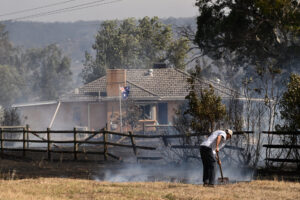Good politics, good policy
Julia Gillard’s multi-party committee on climate change (MPCCC) has achieved what the Rudd government should have relied on its cabinet for – a good political outcome likely to deliver a good policy outcome on that wicked problem of climate change. While there is still plenty of room for negotiations to go off the rails, the architecture announced yesterday stakes out ground that will ensure the various politicians involved will be able to focus on what unites them (support for a carbon price) rather than what divides them (the exact emission reduction targets for 2020). It’s not just good politics though. By focusing on the areas of broad agreement, the MPCCC architecture allows for the pursuit of an ambitious timetable for the introduction of a carbon price in July next year. While the exact carbon price is yet to be negotiated the preferred mechanism, a so-called ‘fixed-price emissions trading scheme’ allows for the introduction of a carbon price which will rise steadily over time while issues such as 2020 targets are being negotiated.
Related documents
Between the Lines Newsletter
The biggest stories and the best analysis from the team at the Australia Institute, delivered to your inbox every fortnight.
You might also like
Why a fossil fuel-free COP could put Australia’s bid over the edge
When the medical world hosts a conference on quitting smoking, they don’t invite Phillip Morris, or British American Tobacco along to help “be part of the solution”.
Burning homes and rising premiums: why fossil fuel companies must pay the bill
Another summer, another round of devastation: homes lost, communities evacuated, lives upended.
Dutton’s nuclear push will cost renewable jobs
Dutton’s nuclear push will cost renewable jobs As Australia’s federal election campaign has finally begun, opposition leader Peter Dutton’s proposal to spend hundreds of billions in public money to build seven nuclear power plants across the country has been carefully scrutinized. The technological unfeasibility, staggering cost, and scant detail of the Coalition’s nuclear proposal have



